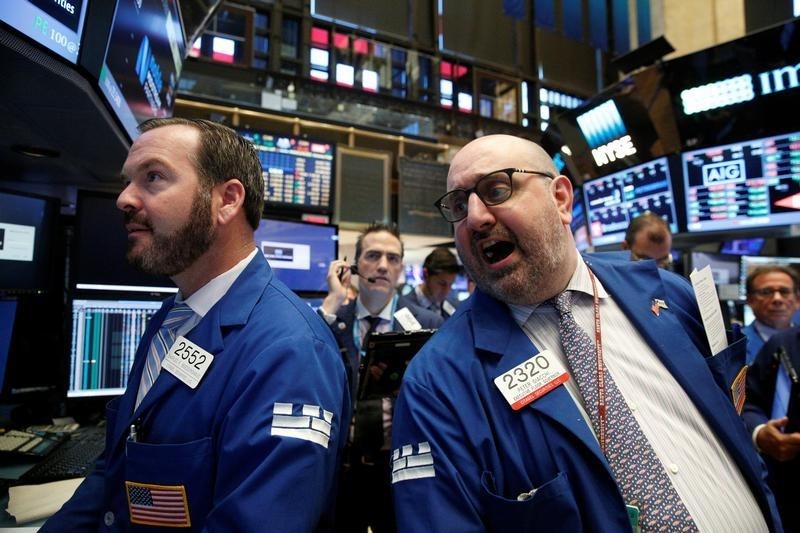By Noel Randewich
(Reuters) - U.S. stocks fell on Friday as the possibility of a $14 billion fine against Deutsche Bank (DE:DBKGn) weighed on big banks and investors wrestled with lingering uncertainty about when the U.S. Federal Reserve will hike interest rates.
The settlement proposal, made during negotiations between the U.S. Department of Justice and Deutsche Bank over claims that the German bank missold mortgage-backed securities, was larger than expected.
Deutsche Bank's U.S.-listed shares (N:DB) slumped 9.35 percent. Dow components Goldman Sachs (N:GS) and JPMorgan (N:JPM) fell over 1 percent each.
The S&P 500 financial index (SPSY) dropped 0.91 percent, dragging down the benchmark index the most. The KBW Bank index (BKX) fell 1.11 percent and logged its second straight week of declines.
Traders have all but ruled out the possibility of the Federal Reserve raising interest rates at its meeting that starts next Tuesday. But residual doubts and questions about when the Fed may finally pull the trigger still hurt sentiment.
"It's the uncertainty of next week, the complacency of investors trying to re-evaluate their portfolios as we prepare for an interest-rate hike," said Jeff Carbone, co-founder of Cornerstone Financial Partners in Charlotte, North Carolina.
The Dow Jones industrial average (DJI) lost 0.49 percent to finish at 18,123.80 points and the S&P 500 (SPX) fell 0.38 percent to 2,139.16.
The Nasdaq Composite (IXIC) declined 0.1 percent to 5,244.57.
With futures and options contracts expiring, about 9.3 billion shares changed hands on U.S. exchanges, above the 6.6 billion daily average for the past 20 trading days, according to Thomson Reuters data.
For the week, the Dow edged up 0.2 percent, the S&P gained 0.5 percent and the Nasdaq jumped 2.3 percent.
The technology index (SPLRCT) on Friday dropped 0.33 percent, pulled down by Apple's (O:AAPL) 0.56-percent decline and Oracle's (N:ORCL) 4.75-percent drop following weak quarterly profit.
Helping limit losses was Intel's (O:INTC) 3.04-percent gain to a 15-year high after the chipmaker raised its third-quarter revenue forecast.
The CBOE Market Volatility index (VIX), Wall Street's "fear gauge", declined 5.7 percent.
Declining issues outnumbered advancing ones on the NYSE by a 1.79-to-1 ratio; on Nasdaq, a 1.18-to-1 ratio favored decliners.

The S&P 500 posted 5 new 52-week highs and 2 new lows; the Nasdaq Composite recorded 88 new highs and 50 new lows.